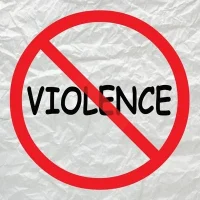Deadline: 30 June 2020
The European Joint Programme on Rare Diseases has announced the RDR Challenges: Fostering partnerships to accelerate innovation.
The innovative “Rare Diseases Research (RDR) Challenges” call aims at facilitate and fund collaboration between industry, academia, SMEs, and patient organizations to solve specific research challenges in rare diseases.
Industry partners have been involved in the identification of four challenges that are the topics of the call and that were validated by the EJP RD partners including patients.
The specificities of rare diseases – limited number of patients per disease, scarcity of relevant knowledge and expertise, and fragmentation of research – single them out as a distinctive domain of very high European added-value. Rare diseases are therefore a prime example of a research area that requires collaboration/coordination at a transnational scale.
In this context, the European Joint Programme on Rare Diseases (EJP RD) is committed to create a comprehensive, sustainable ecosystem allowing a virtuous circle between research, care and medical innovation. The EJP RD brings over 130 institutions from 35 countries: 26 EU Member States (Austria, Belgium, Bulgaria, Czech Republic, Denmark, Estonia, Finland, France, Germany, Greece, Hungary, Croatia, Ireland, Italy, Netherlands, Latvia, Lithuania, Luxembourg, Malta, Poland, Portugal, Romania, Spain, Sweden, Slovakia, Slovenia), 7 associated (Armenia, Georgia, Israel, Norway, Serbia, Switzerland, Turkey), the United Kingdom and Canada.
The EJP RD is implementing a new funding scheme, focused on high added value in the field of therapeutic development, in order to promote and facilitate active collaboration between academia, Small and Medium-sized Enterprises (SMEs), Patients Advocacy Organisations (PAOs) and Industry: the Rare Diseases Research Challenges (RDR Challenges) scheme.
Objectives
The main objectives of the RDR Challenges are to:
- Solve specific research challenges in the field of therapeutic development for rare diseases;
- Facilitate and fund collaborative projects between industry, academia, SMEs and PAOs.
Challenges
- Challenge 1: Development of a non-invasive tool for measuring rare disease patient mobility in daily living
- Challenge 2: Delivery system for intranasal administration of biological drugs to neonates
- Challenge 3: Characterize Rare Bone Disorders (RBD) Mobility Challenges in Real World Setting
- Challenge 4: Pre-clinical assay to detect instability of microsatellite repeat expansions Industry Sponsor
Funding Information
- The total budget of 1.5 Mio€ funding from the European Commission allows for 4 projects to be funded (375 000 € per project).
- The maximum budget that can be requested is:
- 575.000€ for Challenge 1: Development of a non-invasive tool for measuring rare disease patient mobility in daily living
- 487.500€ for Challenge 2: Delivery system for intranasal administration of biological drugs to neonates
- 487.500€ for Challenge 3: Characterize Rare Bone Disorders (RBD) Mobility Challenges in Real World Setting
- 487.500€ for Challenge 4: Pre-clinical assay to detect instability of microsatellite repeat expansions
- Challenges must be solvable within a 30-month period with first milestones/deliverables at 18 months.
Eligibility Criteria
- Partners belonging to one of the following categories may request funding under a joint proposal:
- academia (research teams working in universities, other higher education institutions or research institutes)
- clinical/public health sector (research teams working in hospitals/public health and/or other health care settings and health organisations)
- small and medium-sized enterprises (SMEs)
- patient advocacy organisations
- Eligible small and medium-sized enterprises (SMEs), meeting the EC definition must demonstrate positive financial results for the last 2 years and provide consolidate financial statements using International Financial Reporting Standards.
Evaluation Criteria
Proposals will be assessed according to specific evaluation criteria that are in line with Horizon 2020 rules (see below), using a common evaluation form. A scoring system from 0 to 5 will be used to evaluate the proposal’s performance with respect to the different evaluation criteria.
Scoring system:
- 0: Failure: The proposal fails to address the criterion in question, or cannot be judged because of missing or incomplete information.
- 1: Poor: The proposal shows serious weaknesses in relation to the criterion in question.
- 2: Fair: The proposal generally addresses the criterion, but there are significant weaknesses that need corrections.
- 3: Good: The proposal addresses the criterion in question well but certain improvements are necessary.
- 4: Very good: The proposal addresses the criterion very well, but small improvements are possible.
- 5: Excellent: The proposal successfully addresses all aspects of the criterion in question.
For more information, visit https://www.ejprarediseases.org/index.php/fundings-and-calls/rare-diseases-challenges/









































